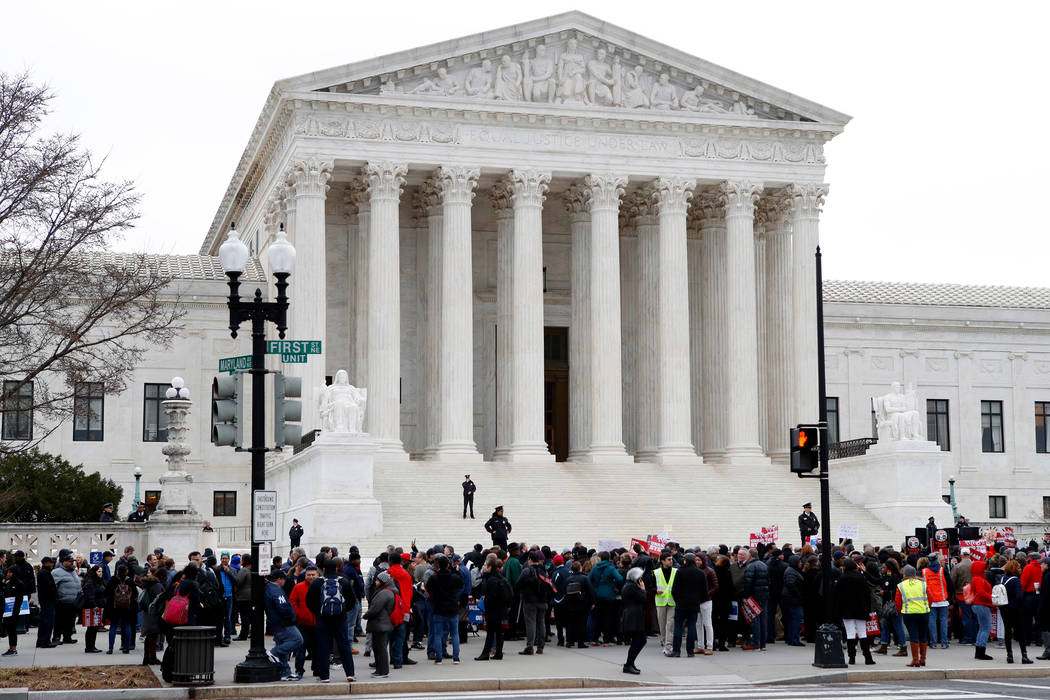EDITORIAL: U.S. Supreme Court takes on food-stamp transparency case
Issues with government secrecy abound in Nevada, but the problem is endemic nationwide. On Monday, the U.S. Supreme Court heard arguments in a South Dakota case that presents the justices with an opportunity to protect transparency requirements involving the federal bureaucracy and those who feed off of it. Let’s hope they seize it.
At issue is information regarding merchants who participate in the Supplement Nutrition Assistance Program, formerly known as food stamps. In 2010 the Argus Leader newspaper in Sioux Falls requested data from the U.S. Department of Agriculture on food-stamp usage in an effort to investigate fraud in the $70 billion-a-year program.
Government officials complied in part. But they also “withheld information reporters saw as critical: How much each store received annually from the program,” the Associated Press reported this week. The USDA argued such details involved proprietary business information.
The paper sued to compel release of the numbers and prevailed in 2016 when a federal judge held that revealing the data would not cause merchants “substantial” competitive harm. Government attorneys opted not to appeal, but a trade group — the Food Marketing Institute — intervened. The Supreme Court agreed in January to hear the case after an appeals panel upheld the original ruling.
It’s worth noting that taxpayer-funded “nutrition assistance” is big business, generating billions of dollars for merchants. For that reason, the food lobby often opposes program reforms such as tightening eligibility requirements.
At issue in the South Dakota case is whether the Freedom of Information Act’s exemption for maintaining the secrecy of “trade secrets or commercial or financial information that is confidential or privileged” should be applied.
Yes, a good case can be made that today’s activist government — at all levels — infringes on privacy by demanding too much information from private entities and individuals. But private interests that voluntarily become part of an alliance with the public sector for their own enrichment must necessarily cede some of their confidentiality expectations. To argue otherwise is to blow a hole in vital democratic protections designed to promote government accountability and transparency by making it easier for the bureaucracies to avoid scrutiny simply by filtering various programs through private contractors.
The figures requested by the Argus Leader could help identify locations where program abuses and fraud are prevalent. That’s reason enough the data should be public. But on the legal issue at hand, the Supreme Court should apply a narrow reading of the FOIA’s exemption criteria, thus breathing more life into the concept that an engaged and informed citizenry is crucial to imposing a check on government malfeasance.

















